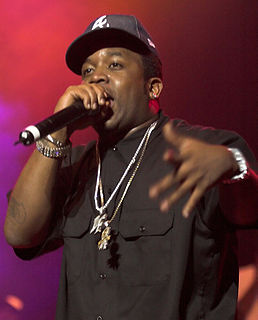A Quote by Seth Godin
The resistance is the voice in your head telling you to use bullets in your PowerPoint slides...It’s the voice that tells you to leave controversial ideas out of the paper you’re writing, because the teacher won’t like them. The resistance pushes relentlessly for you to fit in.
Related Quotes
Look in your own heart. Unless I'm crazy, right now a still small voice is piping up, telling you as it has ten thousand times, the calling that is yours and yours alone. You know it. No one has to tell you. And unless I'm crazy, you're no closer to taking action on it than you were yesterday or will be tomorrow. You think Resistance isn't real? Resistance will bury you.
When you recognize that there is a voice in your head that pretends to be you and never stops speaking, you are awakening out of your unconscious identification with the stream of thinking. When you notice that voice, you realize that who you are is not the voice - the thinker - but the one who is aware of it.
My commodity as a writer, whatever I'm writing about, is me. And your commodity is you. Don't alter your voice to fit the subject. Develop one voice that readers will recognize when they hear it on the page, a voice that's enjoyable not only in its musical line but in its avoidance of sounds that would cheapen its tone: breeziness and condescension and clichés.
I came in at half past eleven. Since then I have been sitting in an easy chair like a fool. I could do nothing. I hear nothing but your voice. I am like a fool hearing you call me 'Dear.' I offended two men today by leaving them coolly. I wanted to hear your voice, not theirs. When I am with you I leave aside my contemptuous, suspicious nature. I wish I felt your head on my shoulder.
I find it's very confusing when one critic tells you one thing and one tells you something completely different. Unless all the critics agree on parts of the play that just didn't work. I have stopped reading reviews, because I find writing is all about courage. You must have courage when you start writing a play and you cannot have the voice - you must write things out. You cannot have the voice of a critic telling you, "That didn't work in that play, you cannot make it work in another play." Every time you do a production, it's an experimentation.
In fiction the narrator is a performance of voice, and it can be any style of voice, but I'm interested in the ways that a voice that knows it's telling a story is actually telling a different story than it intends to. In the way that I can sit here and tell you what I had for breakfast, but I'm really telling you that I'm having an affair, something like that. And I don't think my writing is plain, but I think a lot of my characters are just talking. There is vulnerability there, in that we can start to see through them, we can start to see where they're deceiving themselves.
We're always being told 'find your voice.' When I was younger, I never really knew what this meant. I used to worry a lot about voice, wondering if I had my own. But now I realize that the only way to find your voice is to use it. It's hardwired, built into you. Talk about the things you love. Your voice will follow.






































